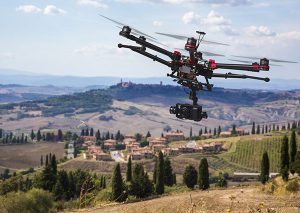Once the hacker has gained control of the wireless printer, the hacker can access all the information you sent to the printer, so it is possible to steal all your personal information for printing. However, not only your private information and identity data are threatened, because this access will also allow hackers to fully control the materials inside the wireless printer and continue to heat the fuser ink for drying on the paper. Burning out of it will set this paper on fire and destroy the entire printer among the princes. So, how do you know if your wireless printer is infected with malware, and how will you fix it? At this point, I can tell you: there is no easy way to detect malware unless you want to throw away the infected wireless printer and replace it with a new wireless printer, but it can be expensive. Or, you can make sure that your wireless printer is not connected to the Internet. To do this, you need to use a wireless printer portable jammer to protect its hardware from malware attacks.
Don’t forget the drone. In order to improve the security level of the Olympic Games, the London authorities have deployed unmanned reconnaissance drones (or simply referred to as reconnaissance drones) to make many people look into the sky in search of potential terrorists and possible attacks. If you live in the US, you may already be asking yourself a question: how does all this affect you? But I can answer this question, you may not like what I want to say. At the other end of the Atlantic, this surveillance can also become a standard, or perhaps it has become a standard. New York City has expanded many surveillance networks mentioned in newspapers and on the Internet as “domain awareness systems.”

The point is that Verizon Wireless has changed its privacy policy to be able to share some of your private information with advertisers and other companies to make its advertising more attractive. Therefore, your information will be used for commercial purposes. What data is collected and shared? Referring to Verizon’s statement, it will include: browsing history, including search queries, the actual location of the GPS module based on the smartphone or the triangulation of the phone tower, and certain demographic information such as gender and age. It will also collect information about the type of device itself and the applications you use and use, as well as information about the use of Verizon products, such as calling features.
The bill to protect geographic location data from mobile phone attacks is not unreasonable. Do you remember the Jones case where the Supreme Court ruled that any law enforcement agency must obtain a search warrant before placing a GPS tracking device on someone’s vehicle? The Senate and Congress have joined forces to protect the use of geographic location data in the same way, but due to FLEOA’s efforts, the new bill may not be passed. How serious is this problem? You will see that geolocation data can be used not only to find your location using GPS coordinates. Modern smartphones have enough technology to discover the floor and room where you are. Bills just try to get a warrant before using geographic location data to track your location, just as they did before getting a search. your house.